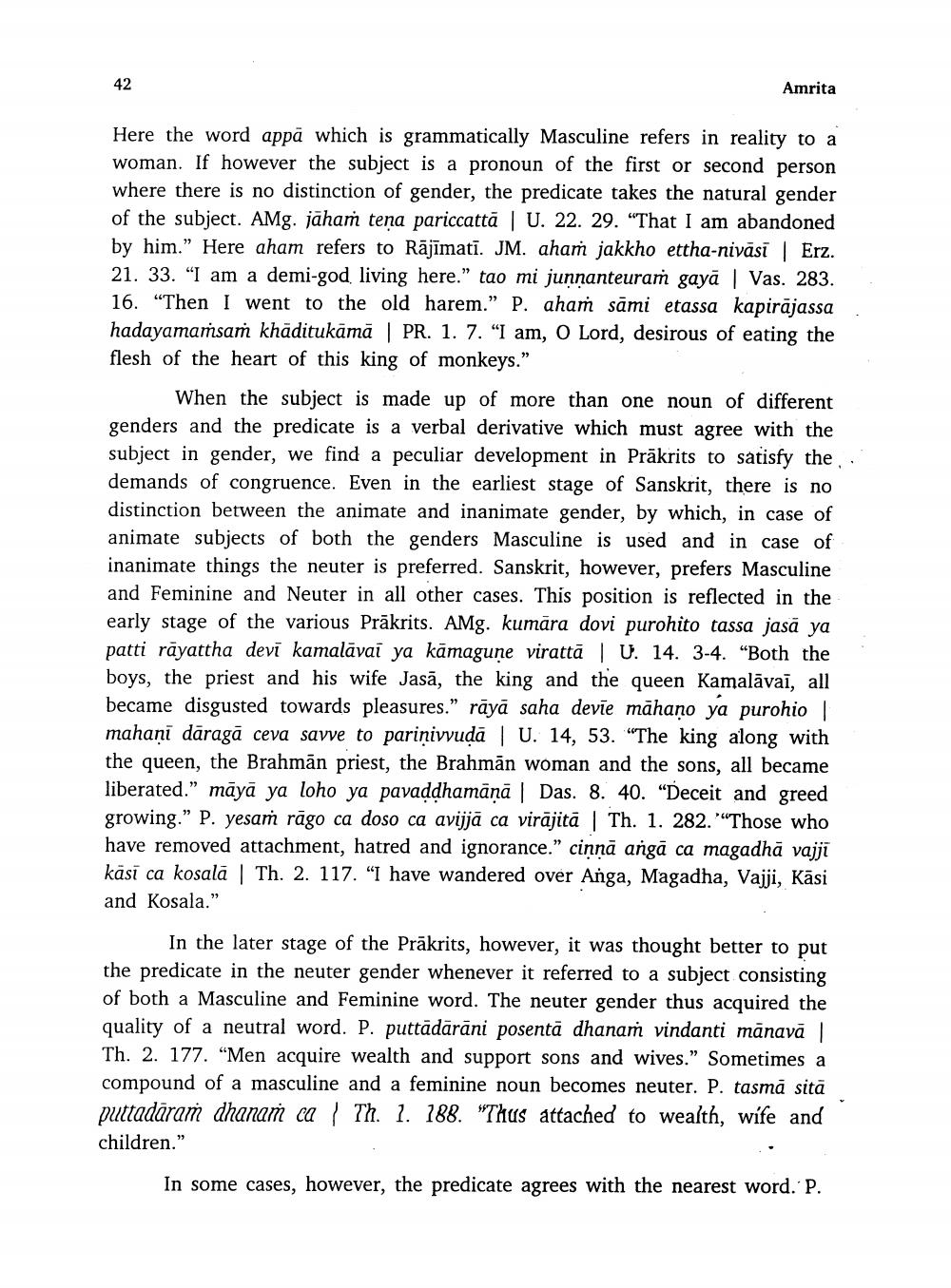________________
42
Amrita
Here the word appā which is grammatically Masculine refers in reality to a woman. If however the subject is a pronoun of the first or second person where there is no distinction of gender, the predicate takes the natural gender of the subject. AMg. jaham tena pariccattā | U. 22. 29. “That I am abandoned by him.” Here aham refers to Rājīmatī. JM. ahań jakkho ettha-nivāsi | Erz. 21. 33. “I am a demi-god living here.” tao mi junnanteuraṁ gayā | Vas. 283. 16. "Then I went to the old harem." P. aham sāmi etassa kapirājassa hadayamamsam khăditukāmā | PR. 1. 7. “I am, O Lord, desirous of eating the flesh of the heart of this king of monkeys."
When the subject is made up of more than one noun of different genders and the predicate is a verbal derivative which must agree with the subject in gender, we find a peculiar development in Prākrits to satisfy the demands of congruence. Even in the earliest stage of Sanskrit, there is no distinction between the animate and inanimate gender, by which, in case of animate subjects of both the genders Masculine is used and in case of inanimate things the neuter is preferred. Sanskrit, however, prefers Masculine and Feminine and Neuter in all other cases. This position is reflected in the early stage of the various Prākrits. AMg. kumāra dovi purohito tassa jasa ya patti rāyattha devi kamalāvai ya kāmagune virattā | U. 14. 3-4. “Both the boys, the priest and his wife Jasā, the king and the queen Kamalāvai, all became disgusted towards pleasures.” rāyā saha devīe māhano ya purohio | mahani dāragā ceva savve to pariņivvudā | U. 14, 53. “The king along with the queen, the Brahmān priest, the Brahmān woman and the sons, all became liberated.” māyā ya loho ya pavaddhamāṇā | Das. 8. 40. “Deceit and greed growing." P. yesam rāgo ca doso ca avijjā ca viräjitā | Th. 1. 282.'"Those who have removed attachment, hatred and ignorance." cinnā angā ca magadhā vajji kasi ca kosalā | Th. 2. 117. "I have wandered over Anga, Magadha, Vajji, Kāsi and Kosala."
In the later stage of the Prākrits, however, it was thought better to put the predicate in the neuter gender whenever it referred to a subject consisting of both a Masculine and Feminine word. The neuter gender thus acquired the quality of a neutral word. P. puttādārāni posentā dhanam vindanti mānavā Th. 2. 177. "Men acquire wealth and support sons and wives.” Sometimes a compound of a masculine and a feminine noun becomes neuter. P. tasma sitä puttadāram dhanaṁ ca / Th. 1. 188. "Thus attached to wealth, wife and children."
In some cases, however, the predicate agrees with the nearest word. P.




